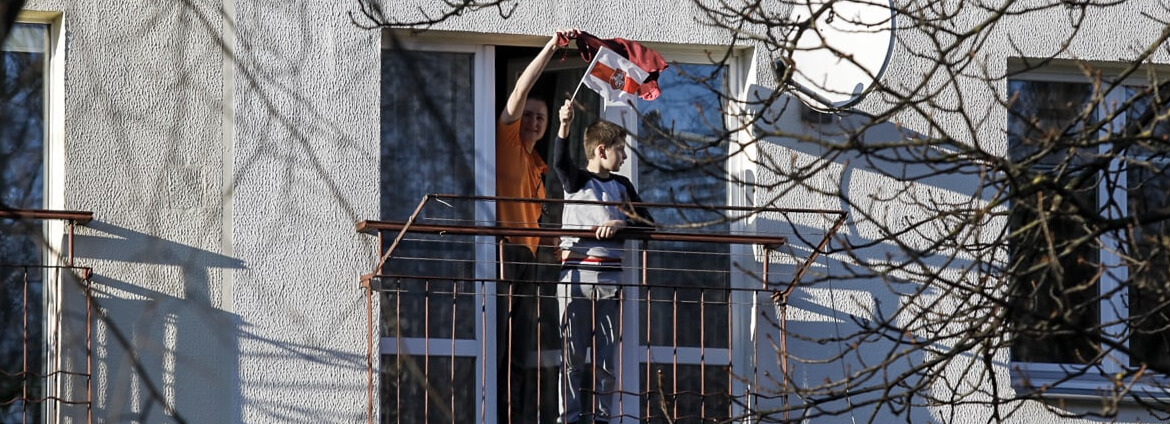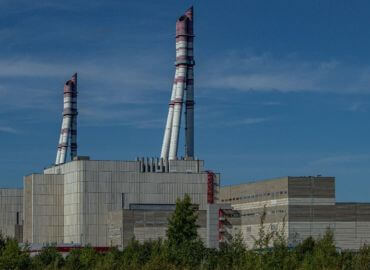First criminal cases open against Belarus officials under universal jurisdiction
Since presidential elections of August 9, over 30,000 people faced arbitrary detentions. There already are at least 158 political prisoners, over 1,100+ reported cases of torture, and ill-treatment. UNHRC acknowledged four people were killed during the protests, and at least 27,000 were detained (although local human rights group and EU’s Special Representative for Human Rights say the number of people arrested has already exceeded 30,000 weeks ago).
Not a single case of police brutality, including politically-motivated murders of protesters and state-orchestrated torture, has been investigated by the acting authorities in Belarus so far. The political situation is becoming even more turbulent with further exposure of economic problems and severe COVID-19 situation that hit Belarus a lot harder than during the first wave – mainly because the authorities continued denied the existence of this issue.
Legal default inside Belarus made other countries, foremost Lithuania, initiate new criminal cases against Belarusian officials in their own territory under universal jurisdiction (since the crimes of Lukashenka regime, beyond any doubt, constitute crimes against humanity and should be prosecuted wherever possible).
On 4 December, the OSCE Ministerial Council, the main political body of the world’s largest regional organization for security and cooperation, adopted an expanded commitment to member states to prevent torture. Compliance with the norms of international law regarding conditions of custody in places of detention is another critically important element of the OSCE commitments to combat torture and cruel and degrading treatment for Belarus – where torture in detention centers is a regular practice.
Although Belarus national Uladzimir Makei, who represented Belarus as acting foreign minister, approved this OSCE decision to prevent and eliminate torture along with his colleagues from other countries, acting authorities continuously use torture against political inmates.
But other than this, given the lack of an effective investigation into the abductions and enforced disappearances of opponents of the Belarusian authorities in 1999-2000, these crimes are considered ongoing until the fate of the disappeared has been established. Which means that now the government of Belarus has a legal obligation to resolve this issue as an OSCE member state, even though Belarus is not a party to the International Convention for the Protection of All Persons from Enforced Disappearance (ICPPED).
The crisis that now lasts for more than four months exposes new cracks in state security forces, write Vlad Kobets (iSANS, executive director) and David J. Kramer (the director of European and Eurasian studies and a senior fellow at the Vaclav Havel Program on Human Rights and Diplomacy at Florida International University’s Steven J. Green School of International and Public Affairs, a former United States Assistant Secretary of State for Democracy, Human Rights, and Labor).
Further disintegration of the security block will jeopardize further rule of self-declared president Aliaksandr Lukashenka. The end of his rule will inevitably result into complete reboot of 26-years-old authoritarian political system in Belarus over the spawn of the next few months. However, it yet remains unclear, how Lukashenka will be removed out of power.
In a paper prepared for Vilnius Institute for Policy Analysis with the support of NATO Public Diplomacy Division, iSANS media expert Serge Kharytonau discusses four possible scenarios for future development of the ongoing confrontation.
While president-elect Sviatlana Tsikhanouskaya expands her international contacts and prepares for an official visit to Spain on December December 21-23, her rival, a former president Lukashenka, constructs an imitation of a dialogue with his own political subordinates while completely ignoring Belarusian society per se.
In order to upkeep personal security, self-declared president Lukashenka prepares a fake political reform to reinforce existent statecraft system. Yan Auseyushkin, iSANS investigator, explains the peculiarities of current political system in Belarus in this context.
Simultaneously, the Kremlin continues to push the regime of Lukashenka into the so-called «Union State». iSANS continues to monitor pro-Russian public pages at VKontakte that are aimed at Belarusian audiences and regularly publish toxic content. The monitoring conducted by our team in January-June 2020 has identified propagandistic narratives aimed at discrediting Belarusian statehood, history, language, and culture.
Such pages also regularly publish anti-Ukrainian and anti-Western messages, hence the findings will be equally useful for foreign audiences. Many pages use various forms of hate speech and sometimes even call outright for violence against certain individuals and groups of the population on professional, ethnic, and political grounds – however, in late 2020 we’ve noticed a major shift in work of pro-Russian propagandistic network in Belarus following August 9 elections. To keep a public track of such publications, we launched a crowdsourcing online platform to expose toxic narratives.
Andrei Yeliseyeu, the head of iSANS Monitoring Group and Research Director at the EAST Center, has classified 25 core narratives that are being used by Russian propaganda in Belarus. Toxic public apply them to create negative image for Belarus, Ukraine, Poland, the Baltic states, as well as the West in the general.
Image: tut.by










